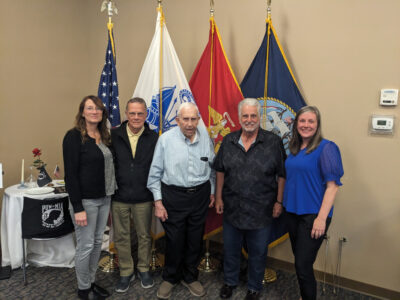Warren Tool and Forge Company aided nation’s industrial expansion
EDITOR’S NOTE: This is part of a weekly series on our region’s history coordinated by the Trumbull County Historical Society.
In the early 20th century, the American landscape underwent physical transformation. Railroads crisscrossed the continent, and new infrastructure rose from the ground, all built with muscle, steam and steel. At the heart of this monumental effort were the heavy, hand-forged tools that moved earth and laid track.
From this era of industrial expansion, the Warren Tool and Forge Company emerged, becoming by the 1930s one of the world’s largest manufacturers of track and contractor’s tools.
The company’s story began in 1911, when a trio of visionary industrialists founded it: President James D. Robertson, Vice President M.J. Konold and George F. Konold (1864-1924), who served as treasurer and general manager. Under their leadership, the Warren plant on Griswold Street NE quickly outgrew its original footprint.
Success demanded expansion, leading to the construction of additional buildings and the installation of more machinery. A pivotal moment came in 1921 with the acquisition of the American Block and Manufacturing Company and the General Malleable Company. These strategic purchases not only brought established businesses, but also allowed Warren Tool to diversify its product line into malleable iron castings — a crucial material for industrial manufacturing.
The soul of the company was deeply rooted in the iron trade, a legacy carried in the blood of George F. Konold. His family’s connection to forging stretched back to 16th-century Germany. His father, Christ Konold, had emigrated to the United States in 1850, working for the Collinsville Axe Company before co-founding the firm that would become the prestigious Iron City Tool Works in Pittsburgh.
It was in this fiery crucible that George F. Konold learned his trade, rising from apprentice to superintendent. This generational expertise was the practical engine that drove the Warren enterprise forward. Following the death of James D. Robertson, Konold ascended to the presidency, solidifying the family’s leadership.
By the 1930s, the company had evolved into a formidable industrial complex. Its sprawling forging department measured an impressive 700 by 90 feet, housing the grinding and heat-treating operations essential for crafting durable tools. Alongside this was a machine shop and a malleable iron foundry.
The company operated three coordinated branches, with its famed “Quikwerk” and “The Devil” tool lines becoming trusted names on job sites everywhere. While tool manufacturing remained its core, the company also produced a large tonnage of malleable castings, both for its own use, such as its “Webco” ground joint pipe unions, and for the wider trade. With more than 250 employees and a monthly payroll of approximately $35,000 in 1930, the company was a significant pillar of the Warren community.
The company evolved with the times, reorganizing as the Warren Tool Corporation in 1932. In a strategic shift, the foundry was sold in 1934 to focus on the full production of heavy hand-forged tools. The mid-century period saw further consolidation of the family’s legacy when, in 1958, Warren Tool Corp. acquired the very same Iron City Tool Works in Pittsburgh, where George F. Konold had begun his career.
For over seven decades, the rhythm of the forge defined a part of Warren’s identity, producing everything from horseshoes to car bumpers. However, the tides of industry shifted again. Following a company-wide restructuring, local manufacturing ceased in 1984. The company was sold in 1994 and eventually became part of the Warren Tool Group under new ownership.


